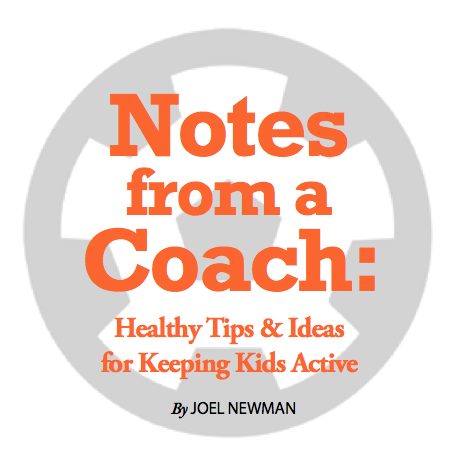
 Active kids are healthier kids; it’s just that simple, so establishing a habit of fitness at a young age can be vital to their development. Children ages 2-5 should be exercising 30 minutes or more a day, while older kids should be getting at least 60. The obvious benefits from exercise include body-based ones like developing strong muscles, lungs and bones while keeping a check on weight gain. As a coach, I am often more impressed with what sports and exercise can do for a child’s development as a person.
Active kids are healthier kids; it’s just that simple, so establishing a habit of fitness at a young age can be vital to their development. Children ages 2-5 should be exercising 30 minutes or more a day, while older kids should be getting at least 60. The obvious benefits from exercise include body-based ones like developing strong muscles, lungs and bones while keeping a check on weight gain. As a coach, I am often more impressed with what sports and exercise can do for a child’s development as a person.
Confidence
When kids exercise and play sports, they build a positive self-image through accomplishment and by overcoming challenges. They begin sharing an identity with the other team members, giving them a special new group to feel comfortable in. As they see they can succeed in multiple environments, they learn not to be afraid of new scenarios and people.
Stress Reduction
We sometimes forget that despite not having “real problems”, kids experience a lot of stress. An exhausting workout can help kids burn off energy, forget their worries and let go of the things that anger and frustrate them. Reduced stress leads to increased focus and a relaxed mind.
EQ or Emotional Intelligence
Reduced stress and increased self- confidence better allow children to empathize with those around them. 90-minute hikes, basketball practices, and bike rides can slow a child’s racing mind, reduce their aggression and generally help center them. Once centered, kids are able to “hear” the important messages coming from parents, teachers and peers.
Cognitive Development
Increased oxygen to the brain increases focus and learning. The New York Times recently published a piece on “a growing body of evidence” which suggests active children are able to focus their attention, are quicker to perform simple tasks, have better working memories and have better problem solving skills than less-active children. In turn, they perform better on standardized academic tests.
If your kids don’t exercise regularly, I encourage you to help them develop the habit. They learn best through modeling, so if you’re exercising, they will likely want to exercise too. Next best is talking to them about it and enabling them to do it, by making it a priority and by making it a joy. You’ll probably find you have a strong partner in your child, who will do their part by bringing an abundance of energy to the table. They’ll also reward you by falling asleep earlier, sleeping longer, achieving more, and becoming more pleasant.


